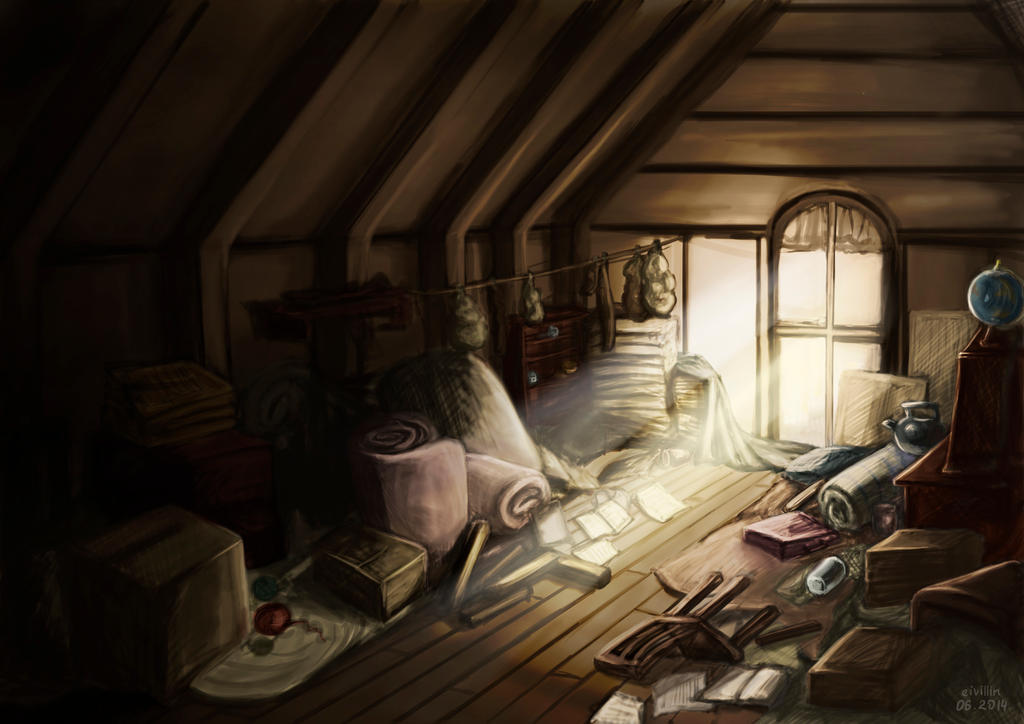
Questions and Answers
Words By Michael Twist, Art By eivillin
Three days before Henry Mullins moved into the Gardendale Rest Home for what was to be the man’s final stop, his nine year-old grandson asked the question. It was the question every grandson has asked every grandfather who ever went to war.
Henry sighed and sat straight on the trunk they had just rummaged through following the recent loss of his wife of forty-six years. A thin beam of light made its way through a vent in the attic, highlighting a plane of dancing dust. It brought to mind a time when the fellows had been playing cards in the barracks. After losing all the cigarettes he’d accumulated since being deployed, Henry had finally figured Mason’s tell. The man scratched a crease in his thumb with the nail on his forefinger whenever he was bluffing. It hadn’t taken Henry long thereafter to get all his smokes—and then some—back.
It was Mason who’d informed Henry that he’d been drawn for The Seven. It was also Mason who loaded the seven carbines in preparation for the firing squad. The Seven never knew which of the rifles had the live round, the other six being blank. It seemed silly, Henry remembered thinking, that in the midst of war, men were to be shielded from the knowledge they were a party to murder.
Yet, after nearly two years of combat, Henry was shielded from such knowledge. He’d fired countless rounds into the night, loaded mortars, even lobbed grenades when circumstances called. But Henry had never known with anything approaching certainty that his actions had led to the death of another human being. And every night, when the barracks, tents, or trenches grew still and quiet with only the sound of snores and whistles, Henry prayed that he had taken no lives. Sure, he knew it increasingly unlikely, but in the fog of war, a soldier took whatever solace he could grasp, no matter how slippery its surface.
The reed-thin kid they blindfolded was as white as the backdrop surrounding their camp, his clothes tattered, boots worn. Henry couldn’t tell if it was the cold or fear that had the ghostly soldier trembling: there wasn’t a man, armed or otherwise, that wasn’t shaking as the Seven brought smooth stocks to their whiskered cheeks. Time seemed to unhinge as they awaited the captain’s command, the smoke from their breath followed by the belching of seven rifles upon issuance of the order.
The kid crumbled to the ground, resting on his knees for a pause before falling like a felled tree in the dirty snow, the image stenciled in Henry’s mind and subject to involuntary review every night since. Henry suspected it would be otherwise had he refrained from asking Mason during a change of dealers that afternoon, if it had been Henry’s rifle that’d been live. Dust danced in a beam of light on the table as Mason considered the question. Like a pro, Mason had said no, but the tell told otherwise.